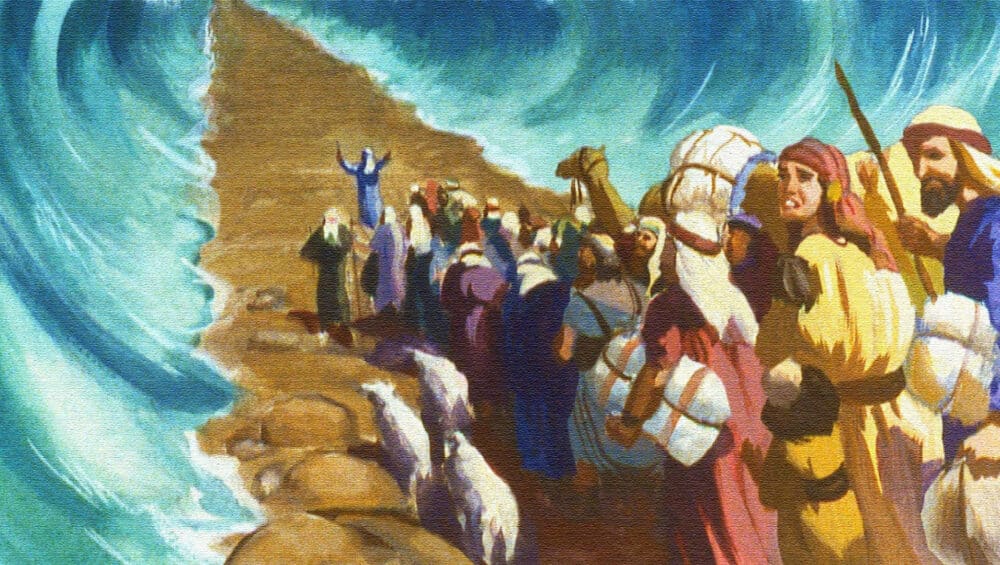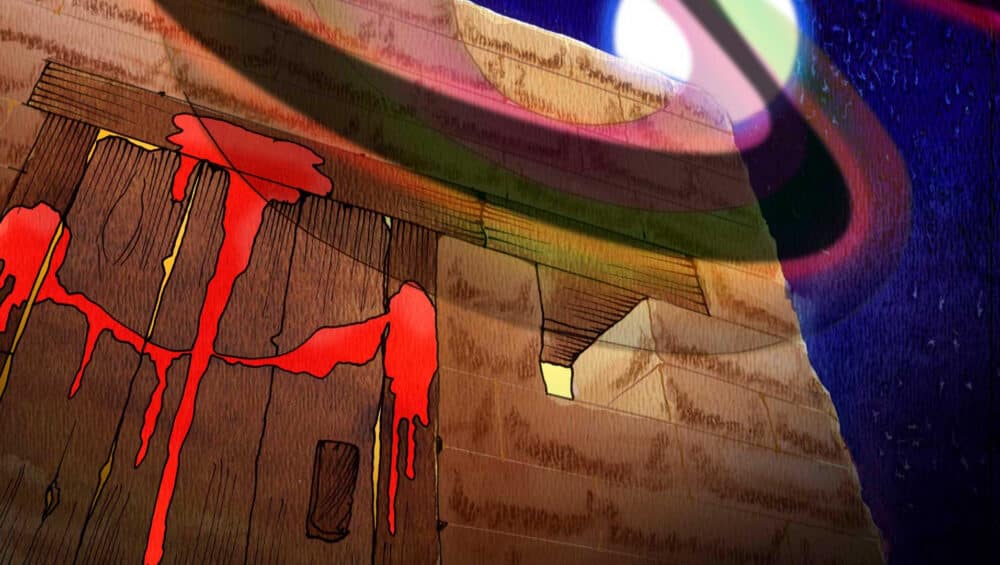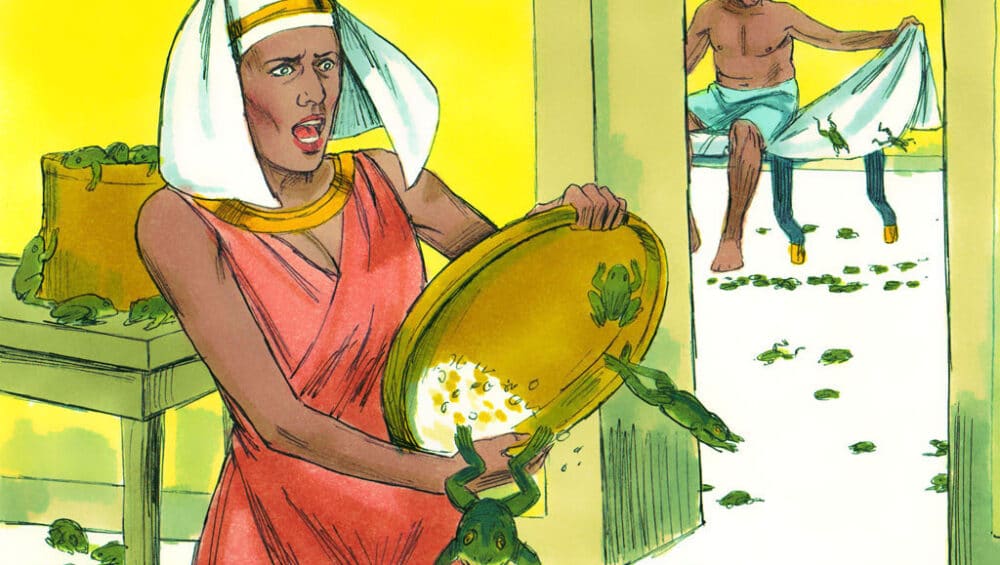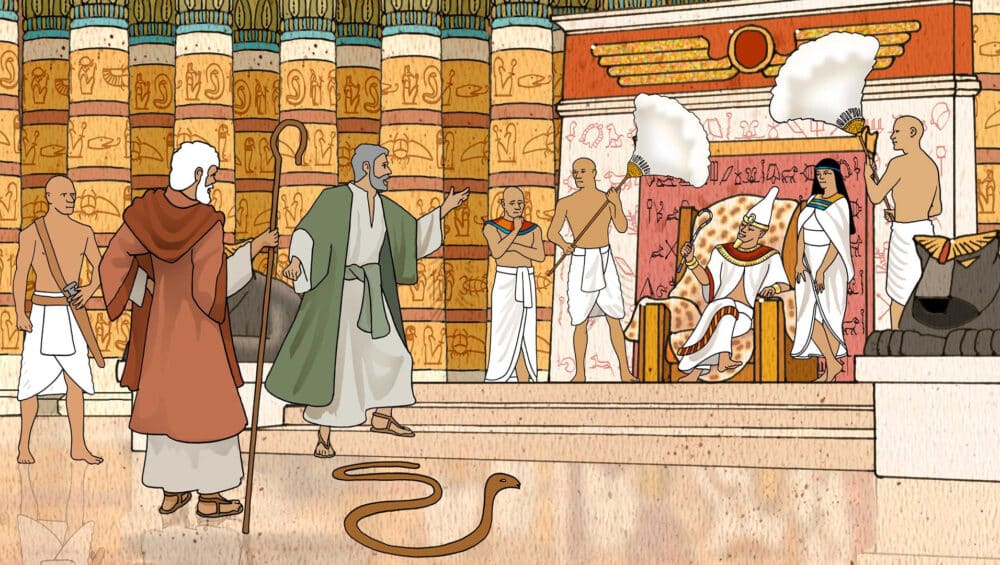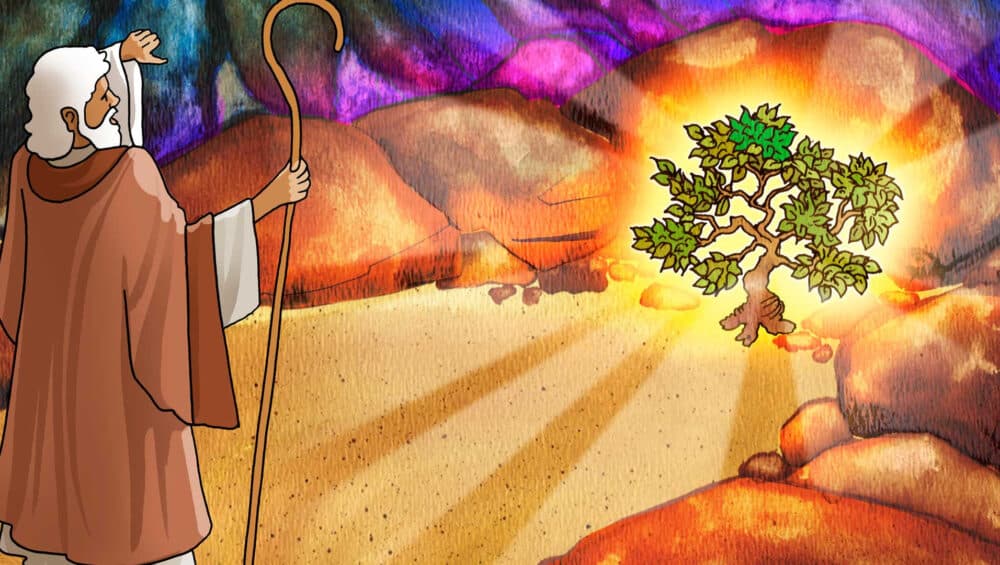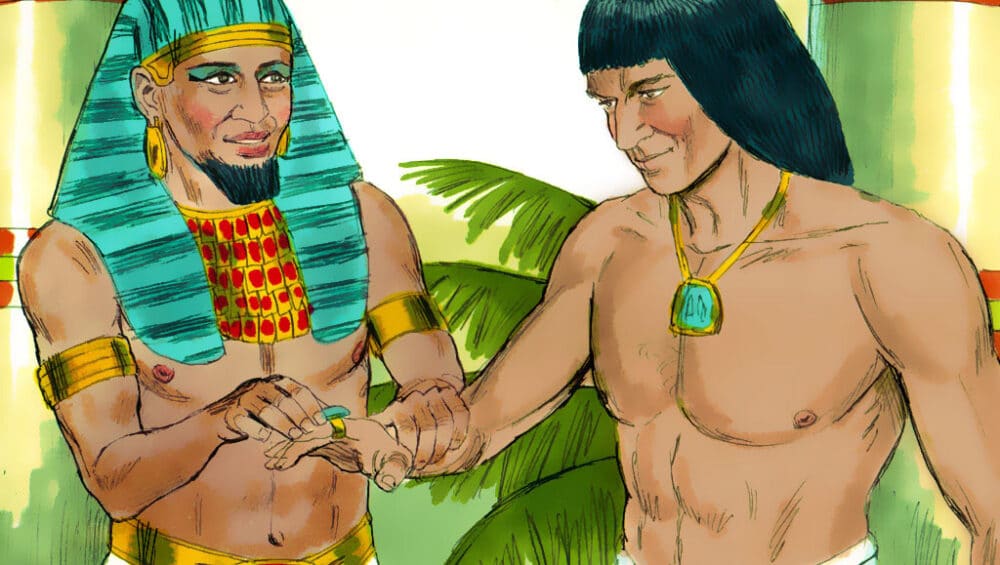Moody Publishers / FreeBibleimages.org.
Welcome to Livin’ Light’s Bible-In-A-Year challenge of discovering God’s love for us and His purpose for our lives. Here is the format for this great adventure: The daily reading assignment is posted at 5 a.m. After each day’s reading, Leigh An Coplin, the blog host, shares observations and poses questions about difficult passages to Rob Fields, who studied Christian Education at Asbury Seminary and currently teaches Biology in the Orlando area. To start from the beginning, click on 365 Bible Readings and scroll down to Day 1. The reading schedule is taken from The One Year Chronological Bible NLT.
Today’s Reading
— Exodus 16-19
(1446 BC) Click here for a timeline of the whole Bible.
Questions & Observations
Q. (Exodus 13:1): What does it mean by dedicate the first offspring of animals and firstborn son?
A. Since God had delivered the Israelites (including their animals) from the tenth plague, He had by implication “bought” them. They belonged to Him, and the consecration ceremony (circumcision, and an animal sacrifice where it could be afforded- we’ll see this in Leviticus) was the reminder of the status of the relationship and the importance of the firstborn in God’s deliverance from Egypt.
Q. (13:3): Why can’t they eat bread with yeast? I’m guessing it’s to remind them of leaving Egypt and that God delivered them from the suffering?
A. Correct. In more modern traditions (including the NT), yeast has come to be seen as the seed of evil (a little goes a long way), and also the result of human effort, since yeast is cultivated for human use. Baking bread without yeast would imply a product created without human effort, which is one of the major implications of this story: nothing that happened in the Exodus story was the result of human effort, but rather by God’s desire to teach His people about relationship with Him. So we might think of unleavened bread as “Godly bread” that requires no human addition.
Q. (13:9): Is this the Ash Wednesday practice celebrating the Lord bringing them out of Israel? The Passover is a celebration of the Angel of Death passing over, right? The celebration of the Israelites escaping Egypt is a different celebration?
A. No, Ash Wednesday is unrelated to this story. A.W. is a Christian tradition marking the 40-day period of Lent that leads up to Easter. Typically, the spirit was one of repentance and fasting (sound familiar?), and since ashes were a symbol of mourning and repentance, they became the symbol of the date. Ashes also mark the mortality of our lives, which is another aspect of this date on the church calendar. If you are reading this in early February, Ash Wednesday is coming soon!
Q. (13:13): Can you explain the buyback? And, the braking the donkey’s neck?
A. Oh, more animal brutality! Will this never end? OK, so when the NLT uses the word buy back, the NIV renders this “redeem”. What it meant was that when a male donkey (and by implication other animals, though it may only refer to pack animals- I’m honestly not sure) was born, it was required to be redeemed or “bought back” from God by sacrificing a lamb or young goat (a Passover offering) in its place. If this was not done (i.e. if the owner didn’t want to provide the sacrifice), the animal was to be killed. My notes indicate that pack animals such as donkeys were incredibly valuable to this society, which is why it was cost effective to offer up a goat or lamb over a donkey. So basically, the buy back was another way to remember the way that God delivered the firstborn in Egypt by using the lamb’s blood.
Q. (15:13-17): The Israelites are obviously in awe of God’s power here and happy that they are out of the Egyptians’ rule. In these verses, are they thinking that going to the promised land will be a walk in the park?
A. Good question, and I don’t really know the answer. It would appear so. But bad times will await the Israelites in the desert: this moment of triumph and faith in God and Moses won’t last.
Q. (15:19): Was this the end of the Egyptians?
A. No. Regardless of the implications of this story, Egypt continued to be a major player in the Middle East, and will be for the duration of this story. They will actually play a key role in the reasons for the downfall of the Kingdom of Israel.
Further reading: Archeological evidence supports the exodus of Israelites from Egypt. https://evidence-for-the-bible.com/archeological-evidence-for-the-bible/archeological-evidence-for-the-red-sea-crossing/
Tomorrow’s reading: Exodus 16-19

